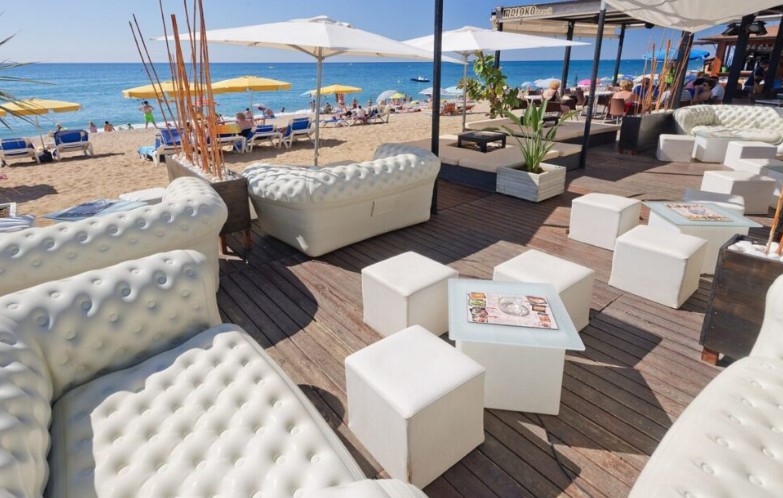We all have that one friend who dreams of selling everything, moving to Spain, opening a bar, and spending their days sipping cocktails on the beach.
Dreaming big is wonderful, I won’t deny that. Psychologists even say that dreaming is healthy. But behind every successful bar lies a lot of hard work, expertise, and sometimes even a bit of luck. Reality can hit you hard if you’re not realistic and well-prepared.
Opening a bar in Spain might sound like the ideal idea, especially considering that Spain has one of the highest bar densities in the world, with about one bar per 169 inhabitants.
But success depends on more than just enthusiasm and sunshine.
- Have a solid plan—not all bars survive
Yes, there are plenty of bars in Spain. But here’s a harsh statistic: 6 out of 10 bars close within five years of opening. Most fail because their owners started with big dreams but without a concrete plan.
Enthusiasm alone won’t cover your rent or your supplier bills. You need to know your budget exactly, including rent, salaries (if you hire staff), and storage costs. All of this can eat into your entire profit—and you may even have to invest your own money in the business.
Here’s a tip: Create a realistic 12-month forecast before you open your doors.
- You can’t ignore the paperwork: Spain loves regulations
In Spain, bureaucracy and paperwork are inextricably linked. If you want to open a bar, you need more than just a license and a dream.
You’ll need to demonstrate fire safety measures, adequate ventilation systems, hygiene certificates, and accessibility for people with reduced mobility, among other things.
You’ll also need a special municipal operating license for bars. Before applying, however, you must submit a complete technical project confirming that your location meets all the requirements. This includes a fire safety plan, a soundproofing plan, your tax identification number, and proof of payment of license fees. Only after passing the inspection will you receive your official opening license.
If you plan to renovate the space, you will also need a building permit. And if you want to use the public space for a terrace, a separate permit is required.
But you don’t have to handle it all alone and get lost in the jungle of paperwork. It’s easier to hire a local gestor (business administrator) or an architect with experience in the hospitality industry.
- Location Can Make or Break Your Bar
Coastal town or small village? City center or residential area? The location of your bar is crucial.
Locations on the coast or in busy tourist areas like the center of Barcelona or Valencia can be more profitable thanks to high foot traffic, but they also come with higher rents and stiff competition. Additionally, it might be difficult to build a loyal clientele, as your customers change weekly.
In contrast, opening in a quieter neighborhood or smaller town gives you the opportunity to attract regulars. Local purchasing power may be lower, but so will your operating costs.
There’s no secret formula; do your research thoroughly. Visit the area at different times and on different days to understand its rhythm.
- Locals are loyal—and not easily impressed
Here’s something most people won’t tell you: Spaniards have a fondness for their traditional bars. In many towns (especially in Andalusia), people frequent the same bar where their grandparents enjoyed their morning coffee or after-work beer.
This means that if there’s already an established bar nearby, don’t expect locals to immediately flock to your place just because yours is new. It takes time to win them over, but if you can do that, they’ll be fiercely loyal.
Good service, delicious tapas, and fair prices are your best selling points. If you plan to attract foreigners, it may be easier at first, but the real key to long-term success lies in your relationship with the locals. The majority of people living here are Spanish.
- Know what equipment you need from the start
Every bar has a few essential items, depending on the space: a bar counter, kitchen equipment (especially if you serve tapas—which you absolutely should), a POS system, refrigerators, furniture, alarm or camera systems, etc.
You’ll probably need a TV or a sound system.
If you’re renting a furnished apartment, check everything thoroughly before signing the lease. Don’t assume everything will work perfectly.
Equipment? Yes. State-of-the-art furnishings? Not necessarily. Spaniards aren’t necessarily impressed by futuristic interiors—as long as you offer good quality, they’ll be happy. So, there’s little point in overinvesting in this area.
- Seasonality can hit hard, so be prepared
This is often overlooked. If you’re opening a bar in a coastal town or tourist area, expect a summer boom and a winter slump. Especially in small beach towns, business can plummet once the season ends.
Be prepared. Think about special events, brunch menus, or activities that attract locals during the off-season. Don’t rely solely on tourists to keep your doors open year-round.
So, opening a bar in Spain isn’t just a fantasy; it can certainly work. But it takes more than just a good mood and sunny beaches. Do your homework, stay realistic, and remember: In Spain, bars aren’t just places to drink; they’re an essential part of the community.




